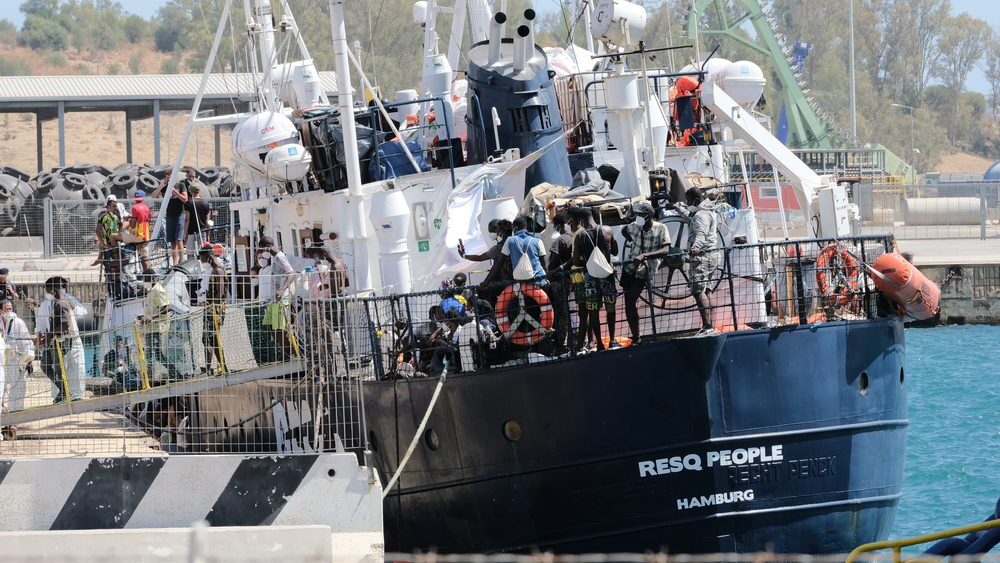
Migrants disembark a German NGO vessel in Sicily, Italy.
Photo: Alessio Tricani / Shutterstock
The German Ministry of the Interior has proposed a draft amendment to its Residency Act to redefine what constitutes human trafficking into the EU—a move which could criminalize the work of ‘search and rescue’ NGOs operating on the Mediterranean Sea, EU Observer wrote.
Existing German laws already prohibit facilitating irregular entries into the EU for the sake of financial gain or personal advantage, which means NGOs can ferry migrants from the Libyan and Tunisian shores to Europe under the term ‘rescue’ unobstructed.
While several EU countries, including Italy and Greece, have already passed legislation to clamp down on the systemic abuse of sea rescue regulations observed when it comes to North African migrants, Berlin remained the biggest defender—and financier—of these shady NGOs.
Until now. In an apparent U-turn, the government now seeks to expand the existing laws to criminalize all forms of assistance to illegal entries, regardless of the motive, with violators potentially facing massive fines or up to 10 years of prison time.
The proposed changes could also make it illegal to aid people who entered Germany illegally—including with clothing, food, or shelter—in order to eliminate other existing incentives for illegal migration.
The law still has to pass in the Bundestag, but the fact that the proposal exists already proves how much Germany has been struggling with the sudden influx of illegal migrants this year.
In response, over 50 humanitarian organizations—led by one of the most notorious migrant-ferry NGOs, SOS Humanity, which was granted €790,000 from Berlin in September—signed a joint statement urging the federal government to withdraw the proposal.
Addressing the backlash, the Ministry of the Interior scrambled to clarify on X that the new law would not apply to sea rescuers or humanitarian organizations. The aim of the amendment, the ministry said, was to clamp down on human traffickers alone.
The NGOs, however, doubled down on their criticism, claiming that the current draft will create a “legal uncertainty,” making such a distinction hardly possible.
They were joined by the European Center for Constitutional and Human Rights (ECCHR), which called for the inclusion of a concrete “humanitarian clause” to make sure rescue NGOs are immune from the law.
While the government, and especially the Green Foreign Minister Annalena Baerbock, continues to publicly support ‘search and rescue’ NGOs, they have shown no intention to modify the amendment so far.
The country registered over 200,000 asylum requests this year, 77% more than in 2022. What’s more, migrants cost German taxpayers over €50 billion this year alone, at a time when the federal government is struggling to fill the gaping holes in its budget.
